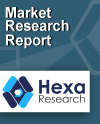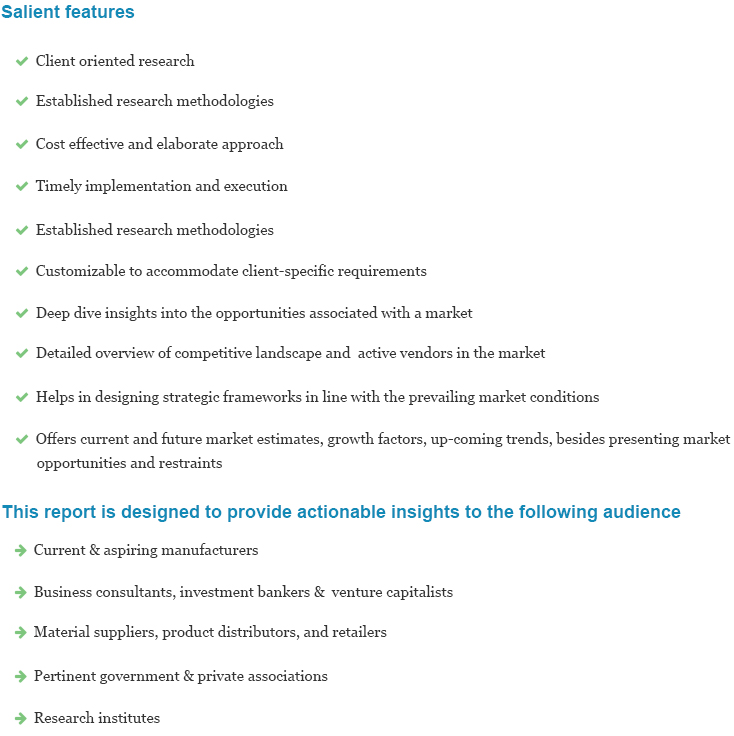
Immunoassay Market Size, Share, Growth, Segmentation, Industry Analysis and Outlook, Market Research, Forecast Report, 2019 To 2025
- Published: March, 2019
- Format: Electronic (PDF)
- Number of pages: 70
- Industry: Medical Devices
The global immunoassay market is anticipated to witness strong growth in the years to come due to rising incidence of chronic and infectious diseases. Rapid globalization has resulted in the transfer of several types of viruses, pathogens, and bacteria. Growing cases of hospital acquired infections, along with unhealthy sanitation practices in daily life, are also responsible for the spread of infections. In addition, rising occurrence of diseases, including Zika, Ebola, and other contagious pathogens, is expected to support market growth in the years to come.
Rapid expansion of the biotechnology and biopharmaceutical sectors is anticipated to drive the market. Immunoassays offer accurate results regardless of small samples than traditional tests. They find widespread applications in therapeutic drug monitoring, disease diagnosis, clinical pharmacokinetics, and bioequivalence in drug discovery and pharmaceuticals.
Technological advancements in immunoassay instruments are projected to have a positive impact on market growth. Automated instruments and equipment in laboratories are increasingly replacing manually operated units as they offer advantages, such as quick results, and requirement of less space and labor.
Development of novel assays for various autoimmune conditions, such as oncology and cardiology, is likely to supplement market growth. Additionally, increasing application in diagnosing drug monitoring tests, infectious diseases, toxicology testing, and discovery of biomarkers is anticipated to increase the demand for immunoassay in the years to come. Rising demand for non-invasive diagnostics methods, analytical testing, and growing need for reagents are also expected to create growth opportunities for the market.
However, complexity in the manufacturing of immunoassays and complex assay procedures can challenge the market. In addition, limit of detection (LOD) for most of the immunoassays is limited, which is expected to restrain market growth in the coming years.
Various technologies employed by immunoassays comprise enzyme-linked immunosorbent assay (ELISA), western blotting, rapid tests, immuno-PCR, and enzyme-linked immunospot (ELISPOT). ELISA is likely to expand significantly in the coming years due to extensive use of immunoassay tests in infectious diseases, cancer, and therapeutic drug level monitoring. Furthermore, these tests use various products and services, such as analyzers, reagents and kits, and software. Reagents and kits hold a prominent share in the market due to their repeat purchase. Additionally, growing adoption of immunoassay tests due to rising incidence of chronic and infectious diseases can boost the segment’s growth in the years to come.
North America is the dominant region in the market due to presence of established healthcare infrastructure. High prevalence of chronic diseases, increasing applications of immunoassay methods in cancer research, and growing adoption of low cost and compact instruments in clinical diagnostics and research laboratories are likely to boost regional growth. The U.S. is a key contributor to regional market growth owing to presence of established healthcare facility, well-defined regulatory framework, and existence of major players.
Asia Pacific is projected to witness rapid growth in the years to come. Japan is one of the key contributors to regional market growth. This could be attributed to strong technological growth and high adoption of immunoassays for the detection and measurement of specific proteins or antigen-antibodies in varied applications. Emerging economies, such as India and China, are also expected to contribute significantly to the growth due to development and production of new vaccines, drugs, and biologics. Additionally, increasing number of diagnostic laboratories, and rising investments by the government in the pharmaceutical and biotechnology sectors can boost regional growth. High investment by the local and international players is also anticipated to create growth opportunities for the market in the region. China occupies a key share in the market owing to adoption of automated laboratory systems.
Some of the key participants operating in the immunoassay market are Abbott Laboratories, bioMerieux, Agilent Technologies, Sysmex Corporation, and Thermo Fisher Scientific.
Thermo Fisher Scientific, in collaboration with Achaogen Inc., introduced a new diagnostic immunoassay to measure the concentration of plazomicin. Plazomicin is a therapeutic antibiotic and aminoglycoside employed for the treatment of patients with complicated urinary tract infections.

Choose License Type
- World's largest premium report database
- Transparent pre & post sale customer engagement model
- Unparalleled flexibility in terms of rendering services
- Safe & secure web experience
- 24*5 Research support service
